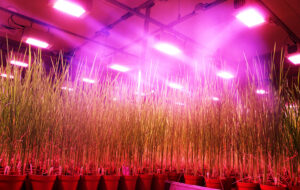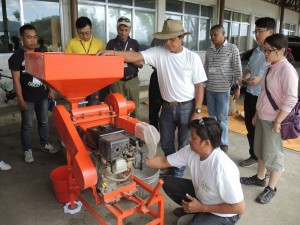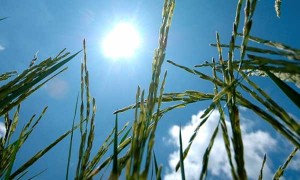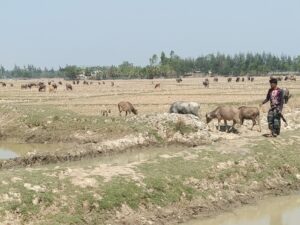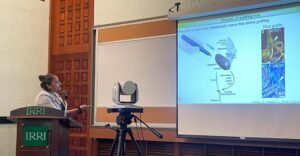Iranian researchers at RUDN University identified a bacteria that can become a potential biological control for Rhizoctonia solani, a fungus that affects rice and other crops.
The bacteria, which belongs to the unicellular filamentous Actinomycetes group, produce a number of substances with antibiotic properties that can destroy the cell walls of microorganisms. Of the 30 Actinomycete isolates the scientists studied in rice seed experiments, three showed high activity against R. solani.
The results show potential use in developing eco-friendly control for sustainable agriculture.
Read the story @News Wise
A resistant variety and a biological fungicide show promise in controlling rice blast in Cambodia
The Cambodian Government has been taking steps to curb the farmers’ overreliance on agricultural chemicals. In fact, in June 2019, Prime Minister Hun Sen urged rice farmers to give up chemical fertilizers and pesticides to take advantage of the growing demand for organically produced food.
In 2017, the government launched a new registry for companies interested in importing biological control agents—living organisms that are incorporated within integrated pest management systems to control the proliferation of harmful species in an ecologically sustainable manner. These include predators, parasites, parasitoids, bacteria, viruses, and fungi.
Integrated pest management: good intentions, hard realities. A review
Integrated Pest Management (IPM)is the model of crop protection that has prevailed since its creation in the late 1950s. IPM has, by virtue of its broad principles, contributed to helping improve crop protection around the world. The objective of this article is to propose a general assessment of IPM. Its concrete implementation in the field is too often still based on the systematic and widespread use of synthetic pesticides. At the end of this review, we propose a change of course in crop protection, in line with the current social, economic, environmental, sanitary, and ecological challenges to tackle in agriculture worldwide.
Reducing pesticides and increasing crop diversification offer ecological and economic benefits for farmers—a case study in Cambodian rice fields
Since the Green Revolution in the 1960s, rice agroecosystems in Southeast Asia are mostly associated with intensified rice monoculture. The trend of intensified rice production and increasing harvested areas is associated with increasing agrochemical inputs like fertilizers and pesticides. The importance of pesticides has dramatically increased in recent decades since many farmers have increased their pesticide use as they believe it is the only way to prevent pest outbreaks.
However, pesticides can be harmful not only for the targeted rice pests but also to the environment and human well-being, since pesticides are often the first choice for pest management. To improve the stated situation, habitat management as a form of biological control has increasingly gained interest.


